
By Tim Williams, Senior Director of Formation and Leadership Development
We understand formation to be our lifelong journey of becoming, and our Vincentian vocation to be the special pathway we have chosen for that journey. As Vincentians, we further our growth along the way, most importantly through our person-to-person service of the poor, and equally importantly, our sharing with each other our own learning, insights, and growth. It is through this sharing that lives our Rule, journeying “together towards holiness.”
Because this is a lifelong journey, we continue our personal formation through a life of prayer and reflection, both individually and with our Conferences. During our personal reflections, it is helpful to read and reflect on the words and actions of the great cloud of Vincentian witnesses who have gone before, especially our founders and our patron saint. To help with this, the Society makes available a large number of books and other resources, and this can be both a blessing and a burden, because where do you start?
I’d like to offer a few suggestions, and would love to hear from you about specific reading, videos, or other materials that have inspired your own growth.
First, here are a few publications that you can find in our online Materials Store:
The Spirituality of the Home Visit: If our visits to the poor are “the means and not the end” as Frédéric once explained, then it is important to be intentional in reflecting upon that work. This booklet is a personal journal, filled with prompts for you to consider how you grew, how you experienced Christ, and opportunities for deeper growth.
Faces of Holiness: This book, written by Fr. Robert Maloney, CM, offers short examinations of the lives of holiness led by several Vincentian Saints and blessed. We are all called to imitate Christ, but just as I learned baseball first by imitating my older brother, and only then the Major Leaguers, so we all can benefit by first seeking to imitate these holy saints.
15 Days of Prayer with Bl. Frédéric Ozanam: This book is best read over fifteen days. Don’t race to finish reading. Instead, take Frédéric’s example and the prayers to heart each day. Use them as a daily meditation. Try to imitate our founder.
1000 Little Prayers for Vincentians: Sometimes it is helpful to read prayers, not because we are not capable of composing our own, but because these prayers may inspire your own prayers, which also may be silent and wordless, contemplating the thoughts these printed prayers have raised.
Apostle in a Top Hat: This book is best viewed as a novelization of Frédéric’s life. It is not a definitive source of history, but its stories beautifully capture the spirit of our founder. (For a deep dive of excellent history, Antoine-Frédéric Ozanam by my friend Ray Sickinger is easily the best choice!)
Elsewhere online, here is some more reading:
Letters of Frédéric Ozanam: Earliest Letters (1819–1840): This collection for Frédéric’s letters, from the age of six, through the found of the Society, and into his young adulthood, show us his growth in holiness, but also show us remarkable insights into our faith for a man of such a young age. This is a publication of the Society, available in paperback or Kindle on Amazon.
St. Vincent de Paul: Correspondence, Conferences, and Documents: This multi-volume set is a comprehensive collection of Vincent’s writing and teaching. A printed set can be very difficult (and expensive) to find, but DePaul University has made all the volumes available online.
And a few videos:
SVdPUSA Spirituality and Formation Channel (includes the shorter Fred Talk videos): Here you will find talks by our National Episcopal Advisor and others, along with many presentations on different formation-related topics.
Finally, don’t forget about the Vincentian Digital Pathway, where you can follow your interests, and discover many more resources.
This short list is only the tip of the iceberg, but I think you will find it fruitful and I hope it will lead you to further reading, and most importantly, help guide you on this lifelong journey of becoming.



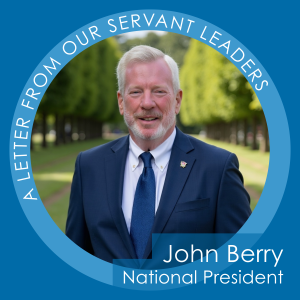
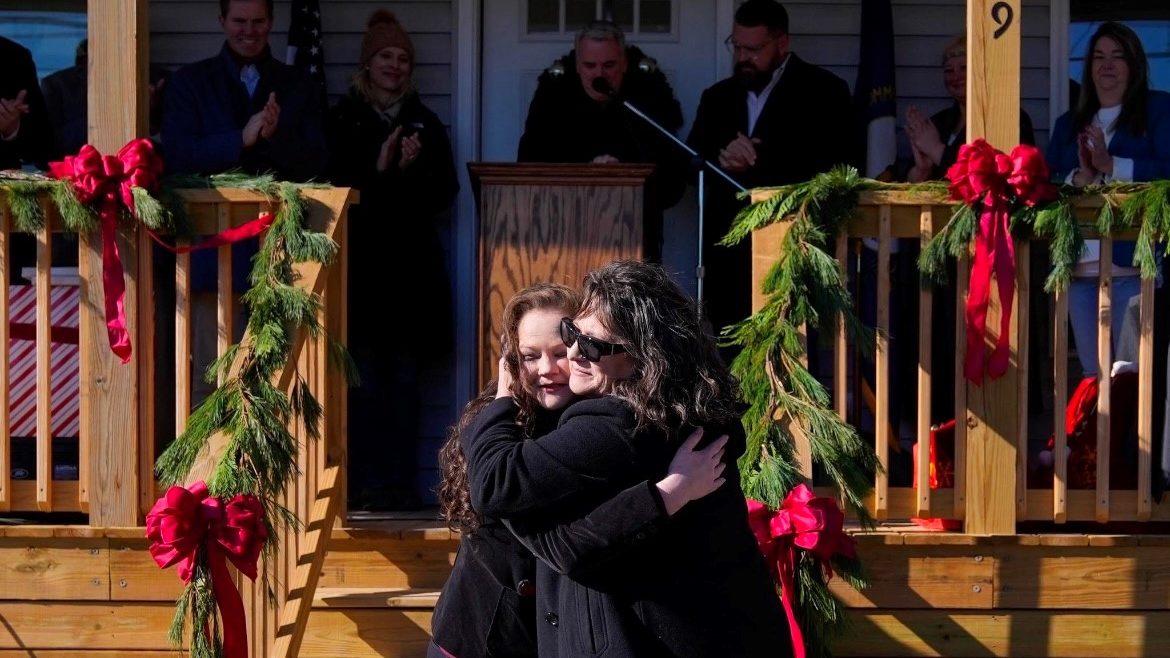
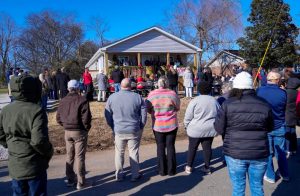
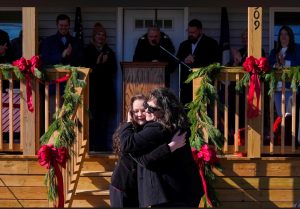
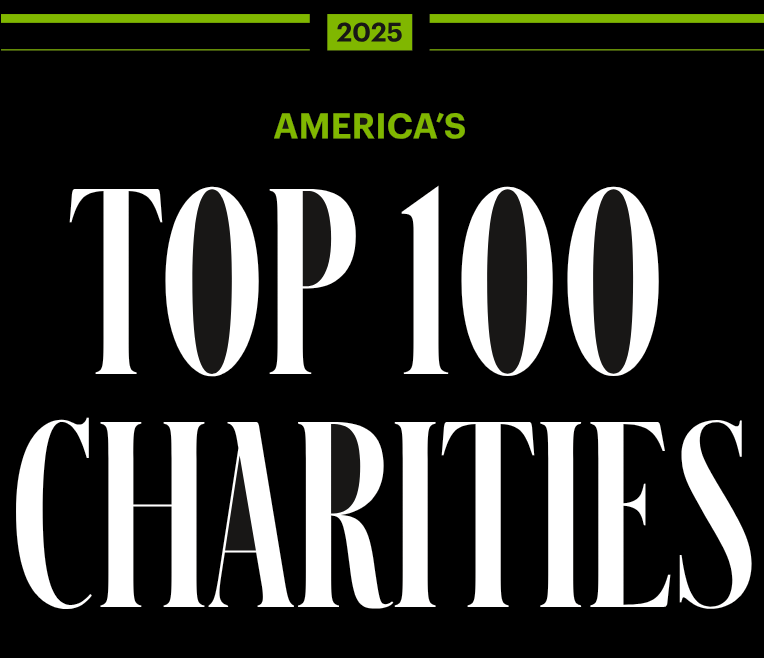



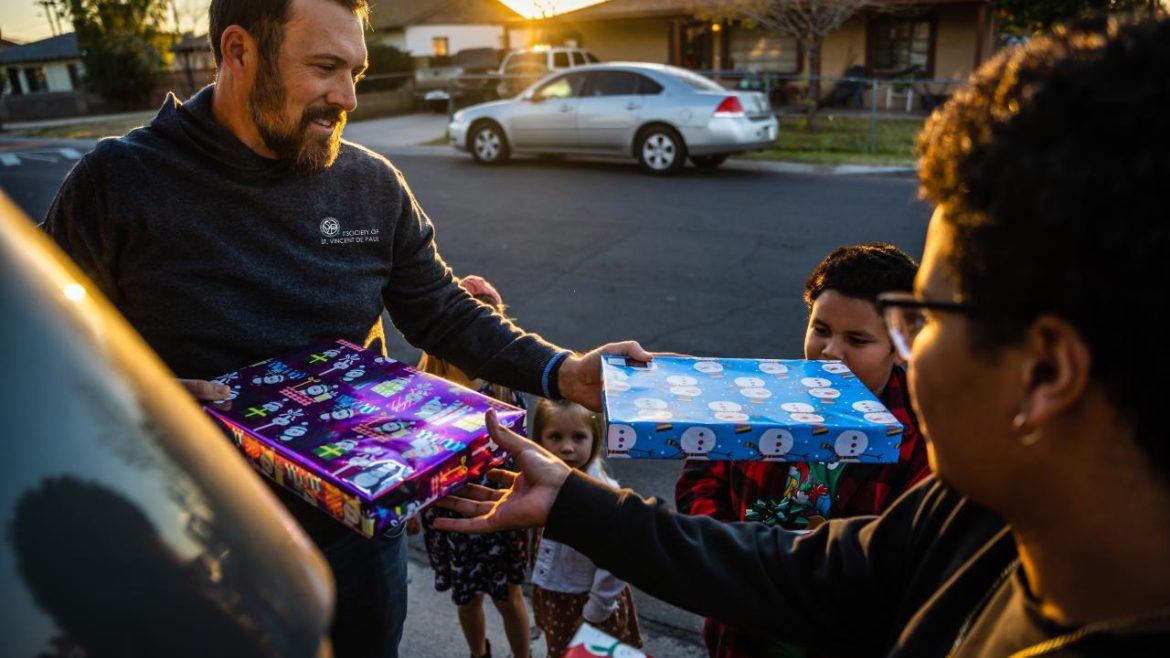
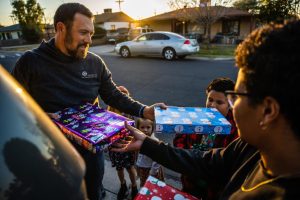 By Chad Caliguiri, Deputy Director, SVdP Des Moines
By Chad Caliguiri, Deputy Director, SVdP Des Moines
 For me it is so special to be with family at Midnight Mass to start the Christmas Season. It is so wonderful singing and hearing the entire congregation singing,
For me it is so special to be with family at Midnight Mass to start the Christmas Season. It is so wonderful singing and hearing the entire congregation singing,